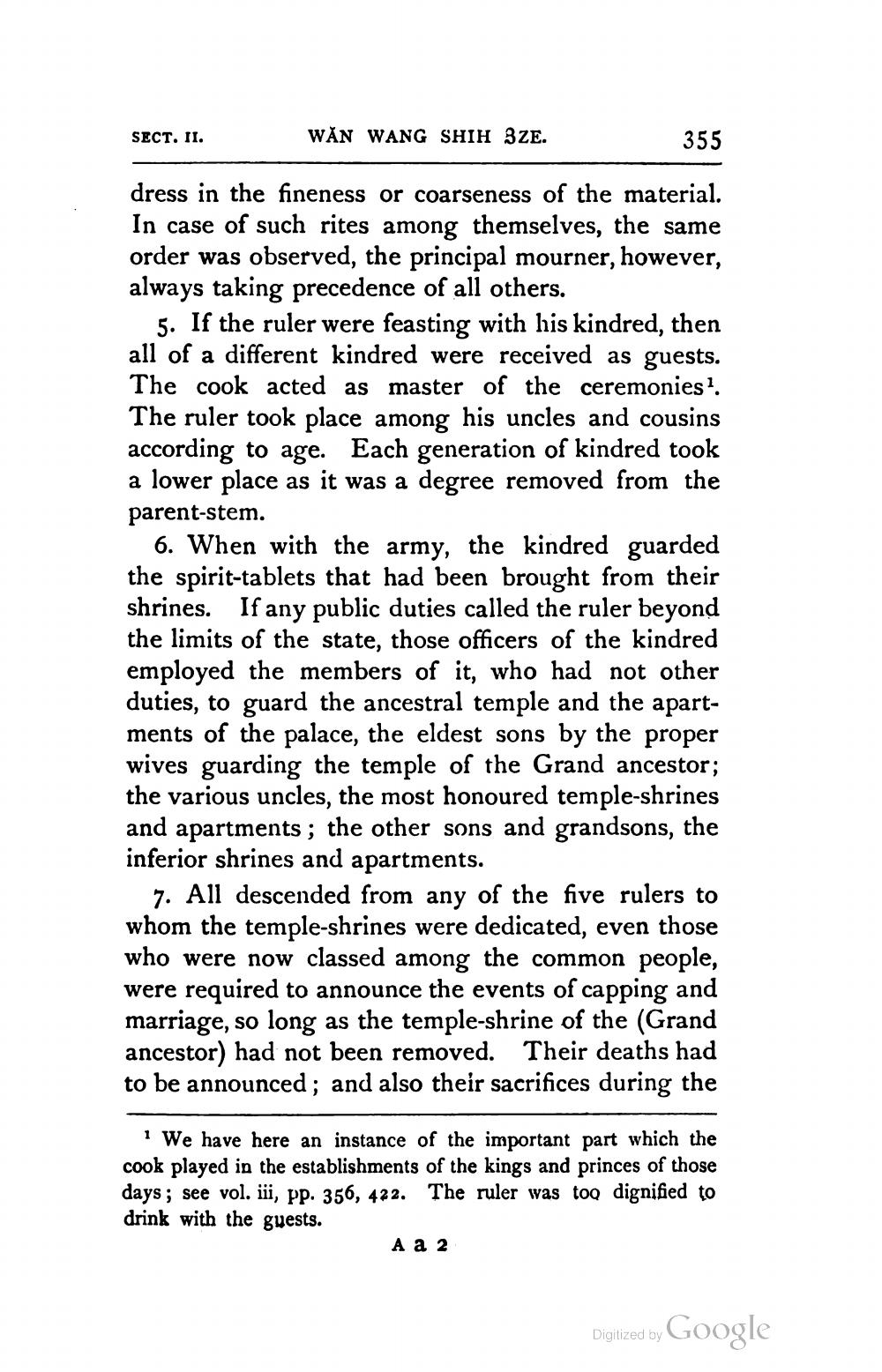________________
SECT. II.
WAN WANG SHIH 3ZE.
dress in the fineness or coarseness of the material. In case of such rites among themselves, the same order was observed, the principal mourner, however, always taking precedence of all others.
355
5. If the ruler were feasting with his kindred, then all of a different kindred were received as guests. The cook acted as master of the ceremonies1. The ruler took place among his uncles and cousins according to age. Each generation of kindred took a lower place as it was a degree removed from the parent-stem.
6. When with the army, the kindred guarded the spirit-tablets that had been brought from their shrines. If any public duties called the ruler beyond the limits of the state, those officers of the kindred employed the members of it, who had not other duties, to guard the ancestral temple and the apartments of the palace, the eldest sons by the proper wives guarding the temple of the Grand ancestor; the various uncles, the most honoured temple-shrines and apartments; the other sons and grandsons, the inferior shrines and apartments.
7. All descended from any of the five rulers to whom the temple-shrines were dedicated, even those who were now classed among the common people, were required to announce the events of capping and marriage, so long as the temple-shrine of the (Grand ancestor) had not been removed. Their deaths had to be announced; and also their sacrifices during the
1 We have here an instance of the important part which the cook played in the establishments of the kings and princes of those days; see vol. iii, pp. 356, 422. The ruler was too dignified to drink with the guests.
A a 2
Digitized by
Google




